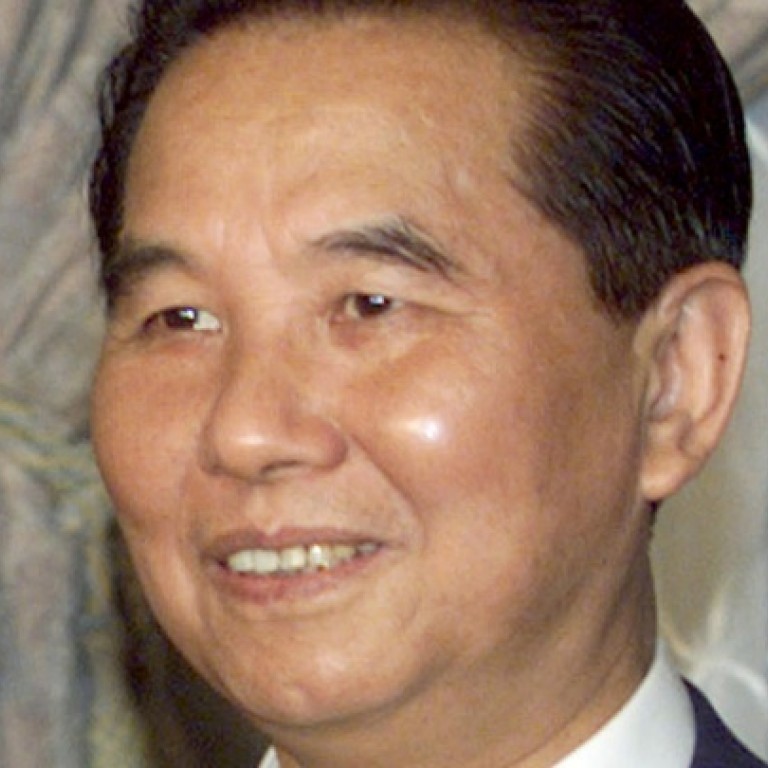
Promotion of former anti-graft chief Wu Guanzheng's book prompts questions
Former anti-graft chief Wu Guanzheng's essays sell out, but critics question rush to praise him
A book by a former head of the Communist Party's anti-graft watchdog has become a bestseller on the mainland thanks to propaganda portraying its author, Wu Guanzheng, as an outstandingly clean and honest role model.
But not everyone is so impressed, with many internet users circulating caustic comments from one Shanghai microblogger, who asked: "What's happened? How come a retired cadre can be lavishly lauded at such a rate on a daily basis?"
Wu, the cadre in question, is a former head of the party's Central Commission for Discipline Inspection (CCDI) and a former member of the party's supreme Politburo Standing Committee.
In one week, 30,000 copies of his book, (Leisure Essays), have sold out and another 50,000 copies are being printed.
The official website of state broadcaster China Central Television and mainland newspapers ran lengthy articles praising Wu, portraying him as an honest and upright senior official who cared for ordinary people for decades before his retirement in 2007.
Some anecdotes about Wu came from his book, while mainland media also interviewed former colleagues in Wuhan , Jiangxi and Shandong .
In one of the essays, Wu wrote that he had fallen out with his elder sister and had never seen her again after telling her son it was "impossible" to help him get a government job.
Another case outlined in the book said that one of Wu's uncles had visited him in Wuhan when he was the mayor of the Hubei provincial capital, begging him to find a job for his son. Wu told him: "I can't do that."
The uncle had done Wu a big favour by giving him 18 yuan in 1959 when Wu was so poor that he did not have the money to travel from his home town in Jiangxi to Tsinghua University in Beijing, where he had been admitted as a student. After he refused to help find a job for his cousin, Wu wrote, his uncle left him in bitter tears.
The media reports also quoted several of Wu's former colleagues and personal secretaries, highlighting his diligence in helping the underprivileged with their problems and his austere lifestyle, which saw him cycle to work when he was Wuhan's mayor and furnish his home with bamboo chairs.
Although Wu is not the only retired member of the Politburo Standing Committee to pen a book in an attempt to cement his political legacy, a publicity push such as the one for his book has been seen rarely since former party chief Jiang Zemin brought out a book.
Beijing-based political affairs analyst Zhang Lifan said Wu's book was no coincidence.
"From the central government's perspective, Wu could be a role model for other officials across the country, telling the general public that there is such a clean and honest official in the party, at the very least," Zhang said.
He said Wu's emergence as a model clean official also was in line with the anti-corruption campaign launched by party general secretary Xi Jinping and current CCDI head Wang Qishan , in which they have pledged to target "big tigers" and "small flies" - high- and low-ranking officials.
Just how convincing Wu's stories are is open to question. Johnny Lau Yui-siu, a veteran China-watcher in Hong Kong, said Wu's image as a role model was hard to verify, particularly as corruption worsened in the five years, from 2002 to 2007, that he was at the helm of the CCDI.
"I don't believe people will be truly convinced about the existence of clean officials, even if the authorities have decided to depict Wu in such a way," Lau said.
There also has been widespread speculation, and some media reports, that Wu's sons have taken up top government and state-owned-enterprise posts. One of them, Wu Guanghua, is deputy general manager of China Everbright Group.
Still, the book sales will prove a financial windfall for Wu, as have books penned by other former state leaders.
Mainland media estimate that a book written by former premier Zhu Rongji may have reaped 30 million yuan in sales, although Zhu has made it clear that he would donate all the money to charity.
Another former premier, Li Peng , donated 3 million yuan (HK$3.76 million) from book sales to poor students.

